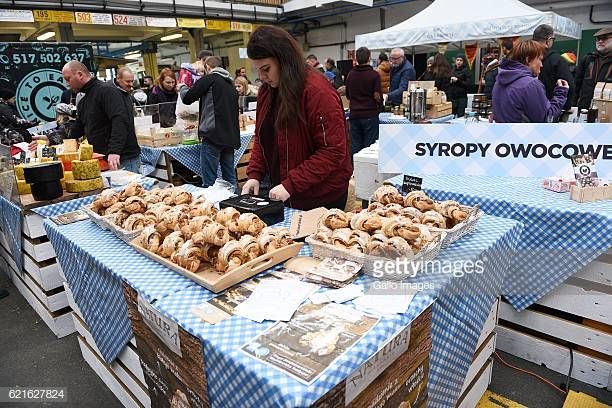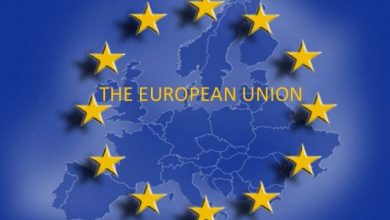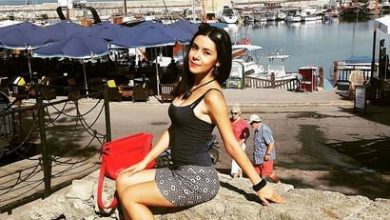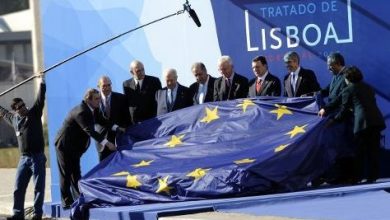The Polish veto on the start of negotiations between Russia and the European Union on replacing the bilateral agreement on partnership and cooperation with the strategic partnership agreement will soon be probably withdrawn by Warsaw. Russian Agriculture Minister Aleksey Gordeev said yesterday that “temporary restrictions on the import of meat products from Poland will be lifted after the signing of a memorandum between the Russian and Polish veterinary services in Kaliningrad next week.”
It was because of the ban in 2005 on the import of Polish meat into Russia that the previous Warsaw cabinet, headed by Yaroslav Kaczynski, decided to quarrel Russia and Europe a year ago, contrary to the exhortations of EU old-timers, primarily Germany and France. As a result, they did not start changing the ATP to particleboard. The PCA expired on December 1, 2007. However, it is automatically extended for another year.
In essence, Gordeev yesterday spoke not so much about Polish meat as about unlocking relations between Moscow and Brussels. It is clear that Moscow, whose reputation in the West leaves much to be desired, is vitally interested in any positive. But meat relations with Brussels can not be fixed.
Meat appetizer
Russia’s meat snack was never enough. We have to close the deficit with imports. According to customs, in 2006, a third of all eaten meat was imported. Especially a lot of beef is imported – 65%, pork – 52%. And only the domestic poultry industry is ready, according to the Ministry of Agriculture, in five years, to fully supply the domestic market with its products.
Polish meat supplies, even during the Council for Mutual Economic Assistance, were not particularly noticeable. Then the Polish peasants delivered to the USSR cloves, potatoes and other vegetables. By 2005, no more than 1% of Russian needs for beef was provided by Polish supplies. For Poland, the profitability of meat exports to Russia is also not very significant – no more than $ 400 million.
Marek Starczewski, adviser to the chairman of the board of the assistance center of the Polish Chamber of Commerce, in an interview with the Gazeta correspondent emphasized: “Meat is far from being the main product of Polish-Russian trade, it is rather a symbolic article. Every year its role is reduced.”
There was never, as Starchevsky assures, even claims from Russian veterinarians: “Three years ago, even before the border incident with Polish meat, our plants inspected our factories. And there were no complaints.”
However, in the fall of 2005, the Federal Service for Veterinary and Phytosanitary Surveillance, subordinate to the Ministry of Agriculture, introduced an embargo on the import of Polish beef into Russia. The official reason is an attempt to supply meat from third countries with fake Polish certificates of conformity. Russian veterinarians discovered about 30 fictitious documents. First Deputy Prime Minister Sergei Ivanov was indignant, recalling the ups and downs of the scandal: “They tried to import buffalo meat from Southeast Asia into Russia under the guise of Polish beef. And we generally do not sell such meat for sanitary requirements.” However, the Poles didn’t remain unprofitable – they fused buffalo to German cruise companies.
The government of the then Polish prime minister, Yaroslav Kaczynski, regarded the embargo as an insult. The official representative of the Polish Foreign Ministry in the current government, Pyotr Pashkovsky, said yesterday that the issue of lifting the Polish veto on chipboard negotiations has not yet been resolved, it is necessary to wait for the official lifting of the Russian embargo.
The misunderstanding, however, was clearly of a political nature.
Brussels sprouts
The head of the Polish program for promoting meat to international markets, Petr Jimann, confirmed that the matter was not in the veterinarians, but in political differences. And not just meat.
In Warsaw, they are more afraid not of reducing the supply of their meat to Russia, but of Gazprom’s price dictate. It is no accident that Yaroslav Kaczynski, shortly before his loss in the parliamentary elections, increasingly spoke of the need to force Russia to ratify the Energy Charter and sign a transit protocol. The commissioning of Nord Stream will most likely lead to a fall in the role of Poland as a transit gas corridor, and, consequently, to an increase in the price pressure of Gazprom.
The Warsaw uprising against the gas monopolist may support Brussels.
As a result, the removal of the Polish veto on chipboard negotiations could even hurt Gazprom. The fact is that the third section of the chipboard may be a special section on cooperation in the energy sector. The positions of the parties in the energy dialogue are directly opposite. Moscow, defending the interests of Gazprom, is doing everything to provide him with favorable conditions for the acquisition of assets in Europe. Brussels, on the contrary, is trying to protect energy Euro assets from Gazprom’s attack. The European Commission is preparing draft directives with the requirement to separate the network and marketing assets of both local and foreign companies. In addition, a special commission may be set up in Brussels to allow foreign energy companies to enter Europe.
Such a tough revision of the energy division of the chipboard will not appear if Moscow does ratify the Energy Charter. But in the Ministry of Industry and Energy, a Gazeta correspondent was reiterated yesterday that Moscow would not make concessions to Brussels and would not agree to ratify the Energy Charter. “The provisions of this document do not meet the interests of Russia,” the Ministry of Industry and Energy said. The scenario in which the EU rejects the requirement to separate the network and generation markets, which infringes on the interests of Gazprom, was called fantastic by the Ministry of Industry and Energy. The energy dialogue set up in September should be set up in September by a working group to resolve energy conflicts. Within the framework of this group, as stated in the Ministry of Industry and Energy, Viktor Khristenko talks with EU Commissioner for Energy Andris Piebalgs. “However, these meetings are irregular,” the Ministry of Industry and Energy noted. Ferran Tarradellas Espuni, spokesman for the European Commission on Energy, noted that the energy compromise initiative should come from Russia, refusing to assess the prospects for a successful energy dialogue.
Visas for sweets
However, particleboard is designed to solve not only energy problems, but also humanitarian ones. The text of the treaty may possibly formulate principles relating, in particular, to democracy, human rights and border crossings.
In Russia, of course, the most awaited cancellation of the visa regime. On June 1, the EU took a step forward after the adoption of the law on readmission by Russia – visa conditions were eased for a number of categories of Russian citizens: businessmen, scientists, students, journalists. However, the complete abolition of the visa regime is far.
Thus, the meat war between Poland and Russia is far from over, as well as the softening of relations with all of Europe.
Do you need a window to Europe or are there enough windows?
Yuri Afanasyev, historian, professor, former rector of the RSUH:
In the times of Peter the Great, it was possible to distribute in one window the entire totality of the existing relations then. In the modern world, it is impossible to communicate either through a window or even through a window. But, unfortunately, in recent years the communication space has been narrowing, and at least in the humanitarian sphere this is felt very strongly.
As for Russian-Polish relations, I am closely following this and I know about some of the statements of our leadership regarding the Molotov-Ribbentrop Pact, and about the tension between our countries over Katyn, and not only because of it.
In addition, relations with Ukraine and the Baltic countries deteriorate. Yes, you can stand in a position and say that we have nothing to do with it. But the relationship from this will not improve.
Tatyana Ustinova, author of detective novels:
Personally, I do not have enough windows or windows. Now, if any king in any way guessed to open the huge gates to Europe, then the whole power would bow to him low in the legs.
It would be nice to remove the fences surrounding our homeland, at least from the side where Europe is adjacent to us (but from the side of Afghanistan with its fields anasha fence can be left). After all, the entire world community is concerned about the abolition of borders, and I do not really understand why we should leave some mythical windows.
We built this fence for decades, starting in 1917, from the time of Lenin, Trotsky, Kamenev and Zinoviev. I am very surprised by those people who quickly forgot about the totalitarian regime and now seriously argue that they have enough windows and do not need any windows.
Millions of peaceful inhabitants of Europe were and are afraid of us, and this is not good, especially considering the constant desire of the world community to integrate and remove, and not to draw borders.
Nikolay Kovalev, State Duma deputy 2000-2003, 2004-2007, director of the FSB 1996-1998, army general:
Since Peter’s times, we need not to cut through a window, but a whole door – we have such a character. Now there is one task: to expand this opening as much as possible so that Russia becomes an absolutely full member of the EU.
Integration processes are underway around the world. Say, the creation of a pan-European currency is a move in the right direction. Now no one is afraid of losing independence and sovereignty, and there are practically no borders, because Europe lives in a common house. I think that Russia should strive for this.
Another thing is that they are afraid of us – because of our multiplicity and some features of behavior. So it’s rather Europe is trying to leave us only a window.
Sergey Lisovsky, representative of the Kurgan Regional Duma in the Federation Council:
In general, I believe that this is not for us in Europe, but they need to knock on us. And politely open the door. Russia is the only self-sufficient European country, and even if we close the borders, we will live well without Europe, because we have everything. But Europe will not last long without us.
But politics consists of the interests of so many people, including personal ones. It is no secret that many companies, especially raw materials, are more interested in that market than in ours. Although commodity prices in Russia are already close to European, trading with Europe can hide profitability – it is clear in what way. Even if Gazprom trades with Ukraine through offshore companies, it is clear that small and medium-sized companies are not far behind.
So instead of closing the door for us, and then, hearing a polite knock, graciously opening, we are waiting for a window or window to be opened to us.
Readmission and visa facilitation opened the window to Europe
The agreement between Russia and the European Union on visa facilitation has been effective since June 1, 2007. It is the first step for further negotiations on the possible opening of a visa-free regime between the two parties. The document provides a simplified procedure for issuing visas for a narrow layer of citizens: entrepreneurs, journalists, scientists, students, schoolchildren, athletes and close relatives of EU citizens. Fully visa regime was canceled only for holders of diplomatic passports, who, however, traveled to Europe without any problems.
The readmission agreement obliges Russia at its own expense to return to the homeland third-country nationals who illegally arrived in the EU through Russian territory and remained there. The document entered into force on June 1, 2007. But he will really begin to work only in 2010. During this time, Russia must conclude relevant agreements with most neighboring states.
Both agreements were signed on May 25 at the Russia-EU summit in Sochi. Deputy Foreign Minister Alexander Grushko then stated that there was no reason to fear that the readmission agreement with the EU would turn Russia into a migrant collection point: “A transition period of three years is sufficient to reliably strengthen our borders, which would in principle minimize the number of illegal migrants, entering Russia, including for the purpose of transit to third countries. ”
And President Vladimir Putin called the signed agreements one of the main outcomes of the summit: “At the very beginning, students, journalists, business representatives, cultural, scientific and sports workers can take advantage of such a simplified procedure for obtaining visas, but this decision is the first step towards introducing a completely visa-free travel regime citizens of Russia and the EU. ”He added that“ the entry into force of new, facilitated visa rules will very soon become an effective incentive for expanding humanitarian cooperation, for joint work and general tions of creative and scientific intelligentsia, youth and students.”
What a feast without Polish meat
The phrase “a storm in a glass of water” is quite applicable to the scandal with Polish meat. The fact is that meat from this country has never played a significant role in the Russian market. So, according to the National Meat Association, in 2005, Russia imported 1.5 thousand tons of beef from Poland, while the total imports amounted to about 650 thousand tons. Thus, Polish supplies accounted for 0.2-0.3% of beef imports. About 12 thousand tons of pork were delivered, which accounted for 2% of the total imports of this type of meat.
In 2006, Russia, according to the Ministry of Agriculture’s ban, didn’t import beef, pork, or poultry meat from Poland, and not one of the metropolitan meat processing plants interviewed by Gazeta even noticed this. According to market analysts, Polish meat was mainly used in the Kaliningrad region due to the territorial proximity and special economic status of this region. However, for the economy of Kaliningrad, the lack of Polish meat is not critical. “Yes, they could buy meat in Poland a little cheaper, but the price difference hardly exceeds 3%,” explains Finam Investment Analyst Vladislav Kochetkov.
In general, Russia’s imports of meat from far abroad countries account for approximately 34% of total consumption. Own production gives only about 60%. Thus, in Russia there is always a certain shortage of meat. “Due to this shortage, the prices on the market are very unstable,” said Sergey Yushin, head of the NMA executive committee.
The fact is that in Russia the principle of quotas applies when importing meat. All deliveries made in excess of the quotas established by the Ministry of Economic Development pass at increased rates. “For beef, they make up 30% of the customs value, for pork – 60%,” Sergey Yushin lists.
The main suppliers of meat to the Russian market are Latin American countries. The leading role belongs to suppliers from Brazil, which account for up to 65% of all imports of beef. The remaining regions are significantly behind. For comparison: in 2007, EU countries supplied less than 3% of total beef imports. Brazil also accounts for pork imports (44-45%), although 35% of pork imports come from EU countries. It is worth noting that the Rosselkhoznadzor has repeatedly banned the supply of Brazilian meat for very good reasons: an epidemic of foot and mouth disease, mad cow disease and other dangerous livestock diseases. However, the ban always applied only to one or several states of the country; the import of meat from Brazil never completely stopped. This is not surprising: even a partial ban on imports from the country, which is really Russia’s meat bins, led to higher prices for meat products. After all, the deficit had to be filled with purchases in the European Union, and there the prices are much higher: the EU itself imports 70% of the total meat consumption.
This post is also available in:
 English
English  Русский (Russian)
Русский (Russian)





